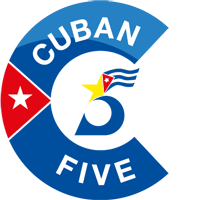|
IN an unusual move by a major U.S. newspaper, The Washington Post October 4 published an article on the case of the Cuban Five, which points out that the imprisoned anti-terrorists should be considered heroes in that country as well.
In the article entitled "The Cuban Five were fighting terrorism. Why did we put them in jail?" Canadian writer Stephen Kimber addresses countless irregularities in the prosecution of Gerardo Hernandez, Ramon Labañino, Antonio Guerrero, Fernando Gonzalez and Rene Gonzalez. "Consider for a moment what would happen if American intelligence agents on the ground in a foreign country uncovered a major terrorist plot, with enough time to prevent it. And then consider how Americans would react if authorities in that country, rather than cooperate with us, arrested and imprisoned the U.S. agents for operating on their soil," notes Kimber, author of What Lies Across the Water: The True Story of the Cuban Five. "Those agents would be American heroes. The U.S. government would move heaven and earth to get them back." "This sort of scenario has occurred, except that, in the real-life version, which unfolded 15 years ago last month, the Americans play the role of the foreign government, and Cuba — yes, Fidel Castro’s Cuba — plays the role of the aggrieved United States." "The five agents were tried in that hostile-to-anything-Cuban city, (Miami) convicted on low-bar charges of "conspiracy to commit" everything from espionage to murder and sentenced to impossibly long prison terms, including one double life sentence plus 15 years," the article reads. Kimber contrasts the behavior of U.S. authorities in the case to that displayed when dealing with terrorists of Cuban origin, who have openly admitted their participation in violent attacks on Cuba. He recalls the case of terrorist Rodolfo Fromenta who, in 1994, was caught in an FBI raid attempting to buy a Stinger missile, a grenade launcher and anti-tank rockets, which he said he planned to use to attack Cuba. "Those actions clearly violated U.S. neutrality laws, but America’s justice system mostly looked the other way," said the Canadian writer, who also refers to Luis Posada Carriles, the intellectual author of the in-flight bombing of a Cuban airliner off the coast of Barbados in 1976, along other terrorist actions, including attempts to assassinate the historic leader of the Cuban Revolution Fidel Castro. Kimber writes, "The closest the U.S. government has come to prosecuting Posada was in 2009, when the Obama administration charged him — not for his role in the Havana bombings but for lying about his role on an immigration form. He was acquitted. "Today, Posada, 85, walks the streets of Miami, a living contradiction in America’s war on terrorism. How to square his freedom with President George W. Bush’s post-Sept. 11 declaration that "any nation that continues to harbor or support terrorism will be regarded by the United States as a hostile regime?" How to square Posada’s freedom with the continued imprisonment of the Cuban Five, whose primary goal was to prevent terrorist attacks? It is a contradiction Americans should consider. "Now you begin to understand why the Cuban Five — as they have become known — are national heroes in their homeland, why pictures of their younger selves loom on highway billboards all over the island, why every Cuban schoolchild knows them by their first names: Gerardo, René, Ramon, Fernando and Antonio," the author explains in his article. The Post is the oldest and largest newspaper in the U.S. capital, with nearly 500,000 copies daily and over 800,000 on Sunday. The paper gained notoriety in the 1970’s with its coverage of the Watergate scandal which led to the resignation of President Richard Nixon. Along with The New York Times and The Wall Street Journal, The Post is considered one of the country’s most influential newspapers. (SE) GRANMA
0 Comments
Your comment will be posted after it is approved.
Leave a Reply. |
Voices for the FiveArchives
May 2016
|
 RSS Feed
RSS Feed

